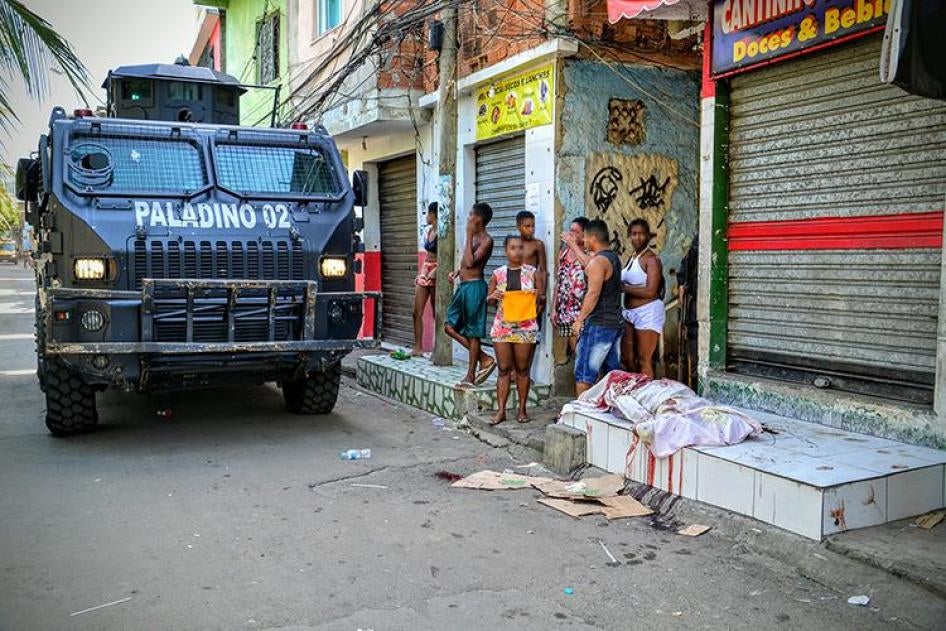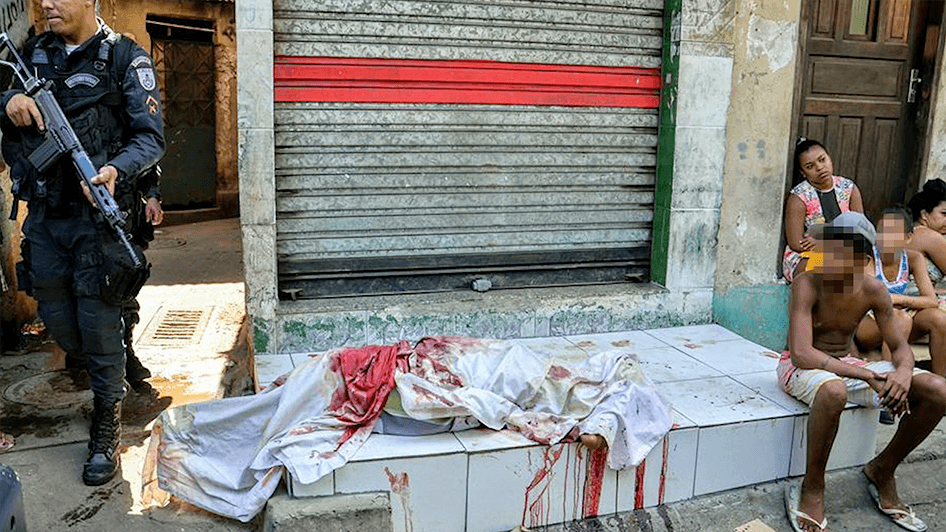On May 5, the United Nations member countries will evaluate Brazil’s compliance with international human rights standards, a process known as the Universal Periodic Review (UPR). Human Rights Watch sent a submission with its concerns.
Brazil supported almost all the recommendations it received from other countries in the previous review cycle, in 2012. In its report to the 2017 review, Brazil gave itself good grades about its progress since then, saying it had fully carried out 60 percent of the recommendations, and had partially implemented or was in the process of implementing the vast majority of the rest. It only cited one recommendation that it declined to implement, which urged Brazil to broaden the possibilities for legal abortion.
Contrary to the government´s rosy assessment, Brazil´s human rights policies have been disappointing.
For instance, Brazil agreed to “fight against arbitrary and on-duty police killings,” and in its report said it had totally complied with a recommendation to revise the police training programs, “putting an end to extra-judicial executions.” Yet the number of killings by police jumped 42 percent from 2012 to 2015. Many of those killings were extrajudicial executions, as Human Rights Watch and others have documented, but the killers were rarely brought to justice.
Brazil said it would ensure that prison conditions comply with international standards and reduce overcrowding and killings of inmates. And in its report Brazil said it had complied with a recommendation to “make more efforts to improve the situation in detention facilities especially in women’s prisons.” Yet many men and women are still held in violent and unhealthy facilities, which house on average 67 percent more people than they were built for.
Brazil also promised to address the “repressive treatment of adolescents.” Yet centers for children -- in conflict with the law -- held close to 22,000 children in 2014, but had capacity for only about 18,000, according to the latest official data available. Instead of promoting rehabilitation and education, many of those facilities are places of isolation and punishment.
The Rousseff administration made little or no progress in addressing these issues. And the administration led by Michel Temer has shown no signs of doing better. In fact, it appears to be headed in the wrong direction on multiple fronts.
A bill that seeks to improve investigation of extrajudicial executions has been virtually halted in Congress after the Temer administration removed its urgent status. The government unveiled a plan to fix the prison system after the killing of more than 130 inmates in January, but has done nothing to reform Brazil´s wrongheaded drug policy and laws, which have been one of the main drivers of the dramatic rise in its prison population in the last decade.
Meanwhile, Temer’s allies in Congress are promoting a bill that would violate international standards by allowing the government to try and punish 16- and 17-year-olds accused of serious crimes as adults, as well as another bill that would aggravate overcrowding in juvenile facilities by increasing the maximum time a young person could be held from 3 years to 10.
On May 5, the international community should hold the Brazilian state accountable for ignoring key commitments it made in 2012 and urge it to take real action to defend human rights.









